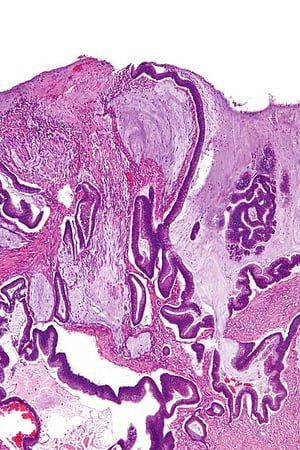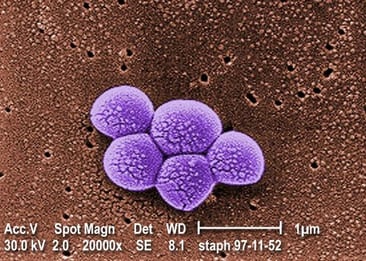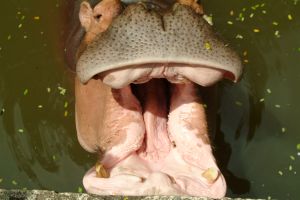 Researchers at University of California, Berkeley have been doing a lot of bird watching lately to help understand the spread of infectious disease. In a recent study they found that Lyme disease, which many believe is spread by rodents and small mammals, is in fact regularly transmitted by several species of birds as well.
Researchers at University of California, Berkeley have been doing a lot of bird watching lately to help understand the spread of infectious disease. In a recent study they found that Lyme disease, which many believe is spread by rodents and small mammals, is in fact regularly transmitted by several species of birds as well.
Read More
Tags:
CA,
Bioresearch,
Lyme Disease,
Southwest,
California,
2015,
Berkeley,
disease research,
BioResearch Product Faire Event,
UC Berkeley,
UCBerk
With the support of a recently awarded $2.3 million NIH New Innovator Award, Pamela Kreeger from the University of Wisconsin, Madison will continue her research into what causes ovarian cancer in women to spread. Pamela Kreeger was one of 50 researchers to receive the prestigious New Innovator Award from the National Institutes of Health in 2014.
Read More
Tags:
Midwest,
Bioresearch,
WI,
University of Wisconsin Madison,
UWisc,
2015,
BioResearch Product Faire Event,
Madison,
NIH funding,
ovarian cancer
A team of researchers at the University of Wisconsin School of Medicine and Public Health in Madison have discovered a way to loosen the foothold of Rhinovirus C (RV-C) in the human body. RV-C is among the most common viral infections in humans and is also the leading cause of the common cold. We haven’t been able to do much to change that so far, but the UW work presents a new understanding and method of attacking the virus.
Read More
Tags:
Wisconsin,
University of Wisconsin Madison,
UWisc,
2015,
BioResearch Product Faire Event,
Madison
 According to a team of researchers at the University of Pennsylvania, one specific contributor to colon cancer may be a protein called MSI2.
According to a team of researchers at the University of Pennsylvania, one specific contributor to colon cancer may be a protein called MSI2.
Read More
Tags:
Pennsylvania,
University of Pennsylvania,
UPenn,
cancer research,
2015,
Philadelphia,
BioResearch Product Faire Event,
PA
 The Minnesota Partnership for Biotechnology and Medical Genomics provides annual funding to researchers at the University of Minnesota, the Mayo Clinic, and the state of Minnesota dedicated to bioscience research. Since its founding in 2003, the Minnesota Partnership has worked to strengthen Minnesota's bioresearch fields and help elevate the state as a respected research center. (Image courtesy of Bsstu via Wikimedia Commons).
The Minnesota Partnership for Biotechnology and Medical Genomics provides annual funding to researchers at the University of Minnesota, the Mayo Clinic, and the state of Minnesota dedicated to bioscience research. Since its founding in 2003, the Minnesota Partnership has worked to strengthen Minnesota's bioresearch fields and help elevate the state as a respected research center. (Image courtesy of Bsstu via Wikimedia Commons).
Read More
Tags:
Midwest,
heart disease,
cancer research,
Rochester,
Mayo Clinic,
2015,
BioResearch Product Faire Event,
MN,
UMinn,
RMN,
Twin Cities
 Imagine finally getting a knee replacement after dealing with years of crippling pain, only to develop a staph, or MRSA, infection at the surgery site. Not only is the pain still present, perhaps even worse, but rest of the body’s health is now at risk as well.
Imagine finally getting a knee replacement after dealing with years of crippling pain, only to develop a staph, or MRSA, infection at the surgery site. Not only is the pain still present, perhaps even worse, but rest of the body’s health is now at risk as well.
Read More
Tags:
Pennsylvania,
Thomas Jefferson University,
2015,
Philadelphia,
BioResearch Product Faire Event,
PA,
NIH funding,
NIH grants,
ThomJeff
 Georgetown University has recently received funding from the National Institutes of Health in order to advance cancer research, including breakthrough research on cancer cells' behavior and the "Hippo" pathway at the Georgetown Lombardi Comprehensive Cancer Center.
Georgetown University has recently received funding from the National Institutes of Health in order to advance cancer research, including breakthrough research on cancer cells' behavior and the "Hippo" pathway at the Georgetown Lombardi Comprehensive Cancer Center.
Read More
Tags:
Georgetown University,
Washington DC,
cancer research,
D.C.,
Cancer,
2015,
Geotwn,
BioResearch Product Faire Event,
Research Funding,
Georgetown,
NIH funding
In the past year, we have seen some excellent progress in the field of breast cancer. Researchers at the University of Texas found a way to reduce breast cancer recurrence, and five University of Cincinnati researchers won grants for their advances in the field. Now Ohio State University has earned its time in the spotlight with a new drug that reverses tumor growth.
Read More
Tags:
Ohio State University,
2015,
BioResearch Product Faire Event,
Columbus,
OH,
OhStu
 One common trait that all humans and animals share is the need for sleep. Even though sleep is a necessity for humans and animals to properly function, there are many disorders that interfere with sleep, such as insomnia and night terrors. Another disorder that certain animals experience is called "local sleep" where part of the brain sleeps while the animal is still awake. Two big questions researchers have are why this happens, and if it can also occur in humans. (Image courtesy of Wikimedia Commons).
One common trait that all humans and animals share is the need for sleep. Even though sleep is a necessity for humans and animals to properly function, there are many disorders that interfere with sleep, such as insomnia and night terrors. Another disorder that certain animals experience is called "local sleep" where part of the brain sleeps while the animal is still awake. Two big questions researchers have are why this happens, and if it can also occur in humans. (Image courtesy of Wikimedia Commons).
Read More
Tags:
Midwest,
WI,
University of Wisconsin Madison,
UWisc,
2015,
BioResearch Product Faire Event,
Madison,
research grant,
Sleep
 Researchers at University of California, Berkeley have been doing a lot of bird watching lately to help understand the spread of infectious disease. In a recent study they found that Lyme disease, which many believe is spread by rodents and small mammals, is in fact regularly transmitted by several species of birds as well.
Researchers at University of California, Berkeley have been doing a lot of bird watching lately to help understand the spread of infectious disease. In a recent study they found that Lyme disease, which many believe is spread by rodents and small mammals, is in fact regularly transmitted by several species of birds as well.

 According to a team of researchers at the University of Pennsylvania, one specific contributor to colon cancer may be a protein called MSI2.
According to a team of researchers at the University of Pennsylvania, one specific contributor to colon cancer may be a protein called MSI2. The
The  Imagine finally getting a knee replacement after dealing with years of crippling pain, only to develop a staph, or MRSA, infection at the surgery site. Not only is the pain still present, perhaps even worse, but rest of the body’s health is now at risk as well.
Imagine finally getting a knee replacement after dealing with years of crippling pain, only to develop a staph, or MRSA, infection at the surgery site. Not only is the pain still present, perhaps even worse, but rest of the body’s health is now at risk as well. Georgetown University
Georgetown University One common trait that all humans and animals share is the need for sleep. Even though sleep is a necessity for humans and animals to properly function, there are many disorders that interfere with sleep, such as insomnia and night terrors. Another disorder that certain animals experience is called "local sleep" where part of the brain sleeps while the animal is still awake. Two big questions researchers have are why this happens, and if it can also occur in humans.
One common trait that all humans and animals share is the need for sleep. Even though sleep is a necessity for humans and animals to properly function, there are many disorders that interfere with sleep, such as insomnia and night terrors. Another disorder that certain animals experience is called "local sleep" where part of the brain sleeps while the animal is still awake. Two big questions researchers have are why this happens, and if it can also occur in humans.  Researchers at the
Researchers at the